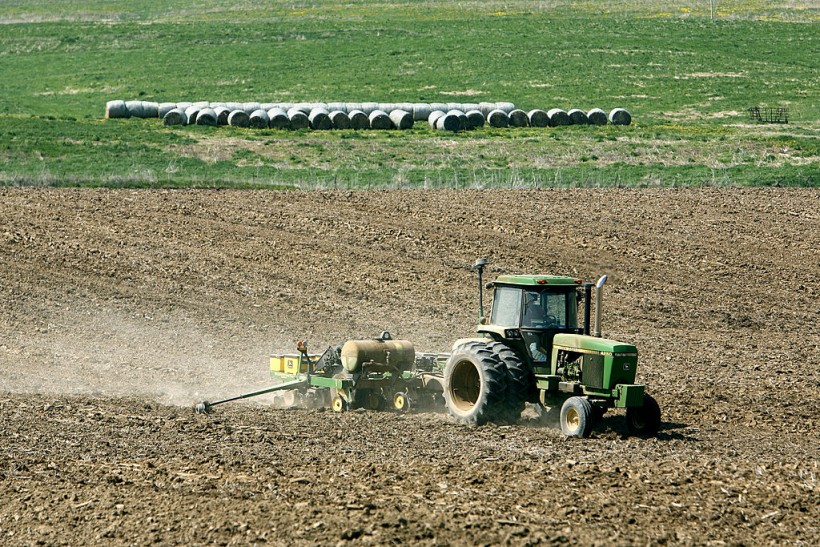Amogy, a Brooklyn-based company less than two years old, announced earlier this week a milestone it has reached by working to develop what it believes will be one of the biggest renewable fuels in the future-ammonia.
Forbes reported that it had its first successful demonstration of an ammonia-powered tractor. Ammonia packs a large energy density that does not yield any greenhouse gas emissions when burned.
Ammonia-Powered Tractors, Why Cutting Air Pollution Boosts Crops And Ford’s Big EV Expansion https://t.co/HMmeoQtWX9 pic.twitter.com/hlyaGgXhoy
— Forbes Tech (@ForbesTech) June 4, 2022
Indeed, the company had devised an engine that has integrated into a standard John Deere tractor. The large vehicle was driven for two separate sessions, and between sessions, it was refueled.
In a press release about the demonstration, Amogy CEO Seonghoon Woo said, they were thrilled to be exhibiting their zero-emission ammonia power solution in action for the first time, "in a tractor."
Essentially, Ammonia is a feasible zero-emission fuel for Ammonia is a viable zero-emission fuel for all types of heavy-duty vehicles, especially farming and agriculture tractors, where the readily-available chemical has been employed for decades as a fertilizer Amogy.
ALSO READ: South Asia's Worsening Air Pollution Is Causing Pregnancy Loss, Study

Iowa farmer Ernie ’George’ Goebel pulls a corn planter behind his John Deere tractor while planting corn in a field on the farm he was raised on May 9, 2007, near Luxemburg, Iowa. With the increased demand for alternative energy, some farmers have elected to switch to growing corn to produce profitable ethanol fuel.
A Solution to Air Pollution
Cutting by 50 percent emissions of common air pollutants could help fuel the growth of crops in many major agricultural regions all over the world, as shown in a new Science Advances research led by the University of Stanford researchers who suggested the reductions could act as an essential mechanism for the mitigation of adverse agricultural effects of climate change.
In this study, the authors discovered that reducing nitrogen oxides, one of the most common pollutants in vehicle exhaust and industrial emissions, could boost the winter crops' growth by as much as 25 percent and 10 percent in China and Western Europe, respectively.
Furthermore, in their paper, the study investigators, who examined satellite images of crop greenness and nitrogen dioxide levels from 2018 to 2020, also discovered that higher air pollutant levels were consistently associated with decreased global crop growth.
Reducing nitrogen oxide levels by 50 percent would benefit summer crops, too, with a potential for eight-percent growth in crop yields in India, 15 percent in China, and 10 percent in Western Europe.
The researchers also found that North and South America had the lowest nitrogen oxide levels out of all the five regions, including the United States, South America, Western Europe, China, and India.
According to a study author and environmental science associate Jennifer Burney, working to reduce air pollution through actions like transitioning to electric vehicles could produce significant agricultural benefits, including enough to "help alleviate the challenge of feeding a growing population."
Benefits of Having an Improved Air Quality
A separate Forbes report said, $5 billion each year is the amount of money the US has gained from improvements in air quality between 1999 and 2019 that fueled a 20-percent growth in soybean and corn crops, as indicated in a previous study conducted by two of the study authors of Science Advances.
Essentially, nitrogen oxides are gases that can, both directly and indirectly, destroy crops through several mechanisms, which include contributing to ozone formation, a toxin that blocks the growth of plants.
In addition, nitrogen oxide also contributes to aerosols' growth, absorbing and diverting sunlight away from crops.
Few studies have investigated the impact of nitrogen oxides on crops on a large scale. More so, climate change can adversely affect crops' production in many ways, including through strong heat waves, droughts, and increases in average temperatures.
On the contrary, research has also shown certain sectors of agricultural production can add to "climate change by fueling air pollution."
Related information about the John Deere Tractor is shown on John Deere's YouTube video below:
RELATED ARTICLE: ADHD in Children May Be Linked Between Exposure to Air Pollution and Risk of Developing the Condition
Check out more news and information on Air Pollution in Science Times.














